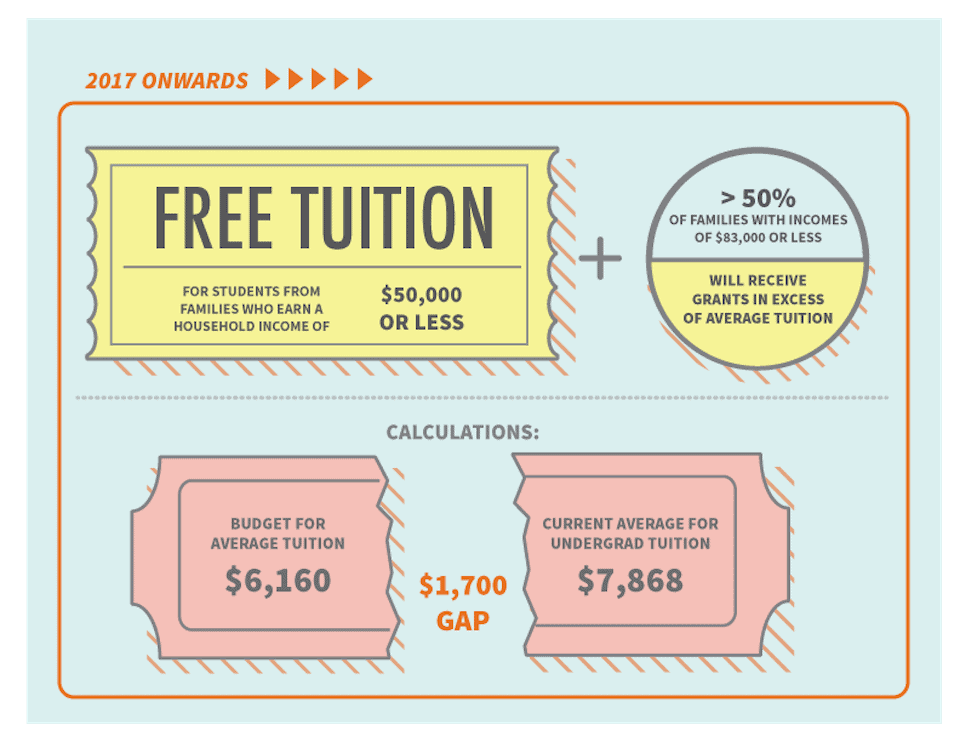The recently proposed 2016 Ontario budget promises free average tuition for students whose household income is below $50,000.
Under the proposed framework, approximately 50 per cent of students whose family income is $83,000 or less will be eligible for grants in excess of average tuition. Currently, the government supports students’ educational costs through OSAP loans, tax credits, as well as through various grants. As of 2017, these existing funding structures will be amalgamated into a single grant: the Ontario Student Grant (OSG).
“For Ontario to thrive in the knowledge-based economy, the government needs to ensure all members of society are given the opportunities, as well as the tools, they need to succeed,” reads part of the report.
“Last Thursday… was the best day of my life as a politician,” said Reza Moridi, the minister of training, colleges and universities. Moridi described the new idea as a milestone and considers free tuition to be the budget’s centerpiece.
When asked about the issue of increased enrolment in the future, Moridi cited another significant part of the budget: the establishment of new university campuses, such as York University Seneca in Markham, and a new proposal for a campus in either the Halton or Peel region.
The budget ties in with the Strategic Mandate Agreements (SMAs), a move towards post-secondary differentiation. In the summer of 2014, U of T agreed to identify its primary strengths in order to channel funding into areas where the university appeared to be most successful.
Under the SMAs there was criticism that nothing was being done to make university education more affordable. There was fear that specializing funding to some programs would leave other “niche programs” vulnerable while larger programs received even more funding.
The students united
Jasmine Denike, vice president, external of the University of Toronto Students’ Union (UTSU) said that the union is dedicated to fighting for accessible and affordable education. “I’m thrilled to hear the words ‘free tuition’ come out of the mouths of many politicians, and we see this as a fantastic first step towards accessible education for all students,” Denike said.
However, Denike said that the UTSU is disappointed that the budget only addresses the ‘average tuition’ of $6,160 without taking into account the fees paid by students in professional programs, part-time students, graduate students, and international students. “There are domestic Professional Faculty students who are paying over $15,000 a year, and international students are still paying unbelievably high costs of over $35,000, not including other living expenses,” Denike said.
In response to the criticism of the new budget, Moridi asked “what is wrong with giving every single individual young person access to education?” He said that the current goal is to ensure everyone has equal access to undergraduate education.
Moridi believes that education is “the best investment” and that everyone should welcome the proposal. Moridi said that he thinks the right decision has been made and that the new budget removes barriers and opens the doors to education to every single person seeking post-secondary education in Ontario.
“Free” tuition
The figure that the budget uses for average tuition is $6,160. However, according to Statistics Canada, the average tuition for undergraduates in Canada is currently $7,868. Not only is there a $1,700 gap, it also does not include the increase expected in tuition in 2017.
Abdullah Shihipar, president of the Arts & Science Students’ Union (ASSU) welcomes the announcement by the Ontario government, though he disagrees with the government’s use of the word “free.”
“Many questions remain about whether or not this will cover students whose fees are deregulated and higher, Computer Science students for example. There is still a lot to improve on and we have to start talking about direct funding of institutions and the rising cost of tuition fees instead of just tackling financial aid,” Shihipar said.
Shihipar also expressed concern that the grant may not work, should the three per cent cap on yearly tuition increases expire in 2017 and tuition fees cease to be regulated. He noted that the grant is a positive step for Ontario and said that the concept of free tuition as a viable structure is welcome.
Shihipar calls upon students to “pressure the government to go further to making our post secondary education system truly accessible and free for all.”


